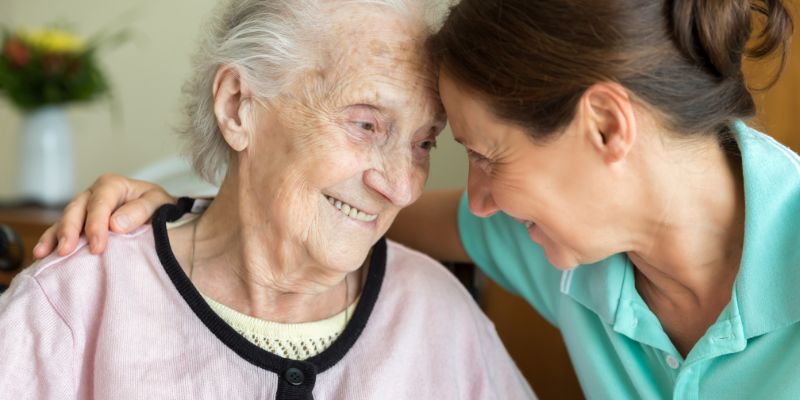What Are Care Plans in Nursing Care?

In the world of healthcare and especially within care homes like Templeton House Care Home, delivering safe, effective, and person centred care depends on more than just compassion and experience—it requires a well-structured plan. This is where care plans in nursing care play a vital role. They are at the heart of quality nursing practice, ensuring every person receives the individualised care they need to support their health and wellbeing.
But what exactly is a care plan in nursing, and why is it so important? In this blog, we’ll explore the care planning process, who it benefits, and how it supports both residents and care teams in achieving the best possible outcomes.
What Are Care Plans in Nursing Care?
A care plan in nursing is a formal document that outlines a person's healthcare needs and the specific nursing interventions required to meet those needs. It is a critical part of the nursing process, which includes assessment, diagnosis, planning, implementation, and evaluation.
The aim of a nursing care plan is to provide person centred, goal-oriented tasks that address a resident’s physical, emotional, mental, and social needs. It brings together input from the nursing team, other health professionals, care managers, and—most importantly—the person receiving care and their family members.
A strong care plan ensures that care is:
- Safe
- Consistent
- Personalised
- Evidence based
It enables healthcare providers to track a person’s health condition, evaluate progress, and adjust interventions as needed.
Who Benefits from a Nursing Care Plan?
1. Older Adults with Complex Health Conditions
Residents with chronic illnesses such as diabetes, arthritis, or cardiovascular disease require consistent monitoring, including checking vital signs like blood pressure, heart rate, and temperature. A care plan ensures these tasks are carried out regularly and any concerns are flagged early.

2. People Living with Dementia or Cognitive Impairments
For individuals with reduced mental capacity, care plans ensure that Mental Capacity Act guidelines are followed. This includes involving the individual as much as possible in decisions about their care and respecting their preferences and life story.
3. Individuals with Mental Health Needs
Those experiencing depression, anxiety, or other mental health challenges benefit from care plans that integrate mental health services and tailored nursing actions. These may include medication, talking therapies, and activities to improve mental wellbeing.
4. Short-Term or Post-Hospitalisation Residents
For people needing temporary care after surgery or illness, care plans help define recovery goals and required nursing interventions, such as wound care, mobility support, and medication management.
5. People with Disabilities or Special Support Needs
Residents with physical or learning disabilities benefit from personalised care planning that respects their support needs, ethnic background, communication preferences, and goals for independence.
The Care Planning Process: Step by Step
Creating a care plan is more than just ticking boxes—it’s a collaborative, evolving journey rooted in a person centred approach. Here’s how the support planning process typically unfolds at Templeton House Care Home:
1. Initial Needs Assessment
An experienced registered nurse leads the first step by gathering subjective data from the resident, their medical history, current health conditions, and any observations from family or carers. Input from relevant stakeholders, such as a local authority or care inspectorate wales, may also be included.
2. Nursing Diagnosis
Using critical thinking skills and clinical judgment, the nurse identifies actual and potential health problems. This step is key to defining the areas of need that require support through the care plan.
3. Planning Stage
In this phase, the care team sets out SMART goals—Specific, Measurable, Achievable, Relevant, and Time-bound. These goals reflect the resident’s desired outcomes and can relate to mobility, nutrition, medication, social engagement, or mental health.
4. Implementation of the Support Plan
The team delivers the agreed-upon care and support in a structured, respectful, and dignified way. All nursing interventions are documented, from assisting with daily activities to medical treatments and therapies.
5. Evaluation and Regular Reviews
A care plan isn’t static—it’s reviewed regularly to ensure it remains relevant. Any change in the person’s health condition or preferences will prompt a reassessment. This dynamic approach allows residents to retain as much control over their own care as possible.
The Role of the Nursing Team and Health Professionals
At Templeton House, our nursing team works closely with a multidisciplinary group of health professionals including GPs, occupational therapists, physiotherapists, and mental health services. This teamwork is vital in delivering holistic, individualised care.
Each member of the team brings unique expertise and nursing intuition, using communication skills and critical thinking to inform decisions. With the support of electronic health records, all updates to a resident’s care are logged in real time, making information accessible and accurate.
Supporting Family Involvement in the Care Plan
Family members are essential in the care and support planning process. They provide key information about the resident’s personality, preferences, and life story—insight that helps shape truly person centred care.
At Templeton House, we ensure families are kept informed, invited to reviews, and encouraged to contribute to ongoing care decisions. Whether it’s suggesting a favourite meal or discussing how to maintain independence, their voice matters.

Personalised Care That Respects the Whole Person
One of the fundamental principles of a care plan is that it should focus on the whole person—not just their illness or diagnosis. This means acknowledging personal identity, preferences, cultural background, and goals for the future.
Through personalised care planning, we:
- Build strong relationships with residents
- Encourage participation in meaningful activities
- Support mental wellbeing and social connections
- Empower people to live their lives on their own terms
Why Are Care Plans Important in the Nursing Profession?
In modern nursing practice, care plans are a hallmark of professionalism and quality. They:
- Provide consistency and continuity in care services
- Promote transparency and accountability among care providers
- Enhance safety by documenting allergies, fall risks, and health alerts
- Enable staff to respond quickly to changes in a person’s health
They also serve as a legal document and are inspected by regulatory bodies such as Care Inspectorate Wales to ensure standards are met.
Digital Innovation in Care Planning
At Templeton House Care Home, we embrace digital technology to enhance the support planning process. Using electronic health records, our team can monitor care delivery, track progress toward goals, and update plans in real-time.
This allows for:
- Greater accuracy
- Faster communication
- Improved collaboration with healthcare providers
- Better outcomes for service users
A Person’s Life, Not Just Their Care Plan
While a nursing care plan is a vital tool, it's not the whole picture. It’s a reflection of a person’s journey, values, and hopes. It honours their past, supports their present, and plans for a meaningful future.
By combining critical thinking, empathy, and collaboration, the care planning process becomes more than a document—it becomes a living, breathing guide to enhancing quality of life.
So, what are care plans in nursing care? They are the blueprint for delivering compassionate, safe, and tailored support. From assessing needs to setting goals, coordinating with health professionals, and involving family members, care plans empower residents and guide carers in making informed, respectful decisions.
At Templeton House Care Home, we believe that care should reflect not only a person’s health conditions, but also their personality, choices, and aspirations. That’s why every support plan we create is built on the principles of person centred care, evidence based practice, and respect for each person’s story.
If you’d like to learn more about how we develop care plans or wish to speak with our team about your loved one’s support needs, please don’t hesitate to contact us. Together, we’ll ensure the care delivered is not only effective but also meaningful.






